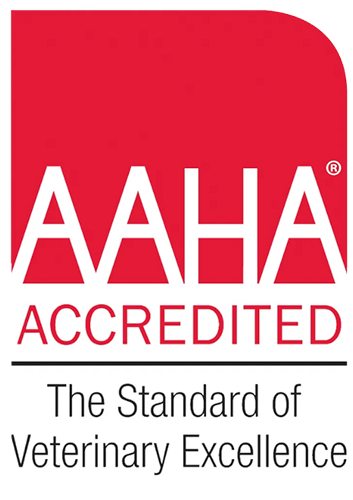Nutrition plays a vital role in your pet’s overall health, energy levels, and longevity. But what many pet owners don’t realize is that the ideal diet for a puppy or kitten isn’t the same as what an adult or senior pet needs. Your pet’s age and life stage are key factors in determining the right food and feeding strategy.
At the best vet clinic in Maillardville, we see a wide range of diet-related issues—many of which could be avoided with age-appropriate nutrition. Whether you’re raising a young, energetic pup or caring for a senior cat, feeding your pet the right diet can prevent health problems and enhance their quality of life.
Why Age-Specific Nutrition Matters
Pets go through different stages of life, each with unique nutritional demands. Puppies and kittens need extra support for rapid growth and development, while adult pets require a balance to maintain their weight and energy levels. Seniors may face health challenges that require tailored diets for joint support, digestion, or organ function.
By adjusting your pet’s diet according to their life stage, you’re giving them the best chance to thrive—physically and emotionally.
Diet by Life Stage
1. Puppies and Kittens (Birth to 12 Months)
What they need: Growth-focused nutrition
During this phase, your pet is rapidly developing bones, muscles, and organs. Their food must be rich in high-quality protein, healthy fats, DHA, and essential vitamins and minerals like calcium and phosphorus.
- Choose a food specifically labeled for “growth” or “puppies/kittens.”
- Feed small, frequent meals—typically 3–5 times per day.
- Avoid adult pet food during this stage, as it lacks the energy density needed.
The best vet clinic in Maillardville often recommends starting with a premium, vet-approved brand known for supporting brain development, digestion, and immunity in young pets.
2. Adult Pets (1 to 7 Years)
What they need: Maintenance and balance
Once your pet reaches adulthood, the focus shifts to maintaining a healthy weight and energy level. Nutritional balance is key—too many calories can lead to obesity, while too few may leave your pet lethargic or malnourished.
- Feed once or twice daily based on activity level and metabolism.
- Look for foods with real meat protein, healthy fats, and fiber for digestive health.
- Ensure the food is labeled for “adult maintenance” and meets AAFCO guidelines.
3. Senior Pets (7+ Years)
What they need: Supportive, lower-calorie diets
As pets age, their metabolism slows, and they may experience issues like arthritis, reduced kidney function, or dental problems. Their diet should adapt to these changes.
- Choose a senior formula rich in antioxidants, omega-3 fatty acids, and joint-supporting nutrients.
- Lower fat and calorie content help manage weight gain in less active pets.
- Softer kibble or wet food may be needed for pets with dental discomfort.
Older pets benefit from more frequent vet checkups, especially to monitor for diet-sensitive issues like liver health, mobility, and digestion. If you’re unsure whether your senior pet’s food still suits them, the best vet clinic in Maillardville can help guide you through dietary adjustments.
Common Nutritional Concerns by Life Stage
Overfeeding and Obesity
Overfeeding is one of the most common mistakes pet owners make, especially during the adult phase. Obesity increases the risk of diabetes, arthritis, and heart disease. Always follow feeding guidelines based on your pet’s ideal weight, not their current weight if they are overweight.
Poor Hydration
Especially for cats on dry food, hydration is crucial. Encourage water intake with fresh bowls, pet fountains, or the addition of wet food.
Sensitive Stomachs
Food intolerances and sensitivities can emerge at any age. If your pet is experiencing frequent vomiting, loose stools, or itching, a dietary evaluation may be necessary.
At the best vet clinic in Maillardville, we use elimination diets or special veterinary formulas to pinpoint sensitivities and offer long-term solutions.
Homemade, Raw, or Commercial?
Many pet parents are curious about homemade or raw diets, hoping for fresher, more natural options. While these can be effective when properly balanced, most homemade diets lack key nutrients unless formulated by a veterinary nutritionist.
Raw diets also carry the risk of bacterial contamination, which can harm both pets and humans. If you’re considering any alternative diet, consult with your veterinarian before making a switch.
High-quality commercial diets are often the most convenient and balanced option, particularly when chosen from trusted brands and tailored to your pet’s life stage.
Tips for Feeding Your Pet Right
- Read the label: Choose pet food labeled as “complete and balanced” and appropriate for your pet’s life stage.
- Measure portions: Use a digital scale or measuring cup to avoid overfeeding.
- Limit treats: Keep treats under 10% of daily caloric intake.
- Monitor weight: Regularly weigh your pet and adjust feeding as needed.
- Introduce changes slowly: Always transition new food over 5–7 days to avoid digestive upset.
When to Consult a Vet About Your Pet’s Diet
There are several signs that your pet’s current diet may not be ideal:
- Sudden changes in appetite
- Unexplained weight gain or loss
- Dry or flaky coat
- Low energy levels
- Frequent digestive issues
Final Thoughts
Feeding your pet isn’t just about filling a bowl—it’s about fueling their life. Choosing the right diet based on your pet’s age ensures they get the nutrients they need for each stage of development, from playful puppyhood to graceful aging.
If you’re ever in doubt about what to feed your dog or cat, book a consultation with the team at the best vet clinic in Maillardville. We’re here to help you make confident, informed choices that keep your pet healthy, happy, and thriving for years to come.


